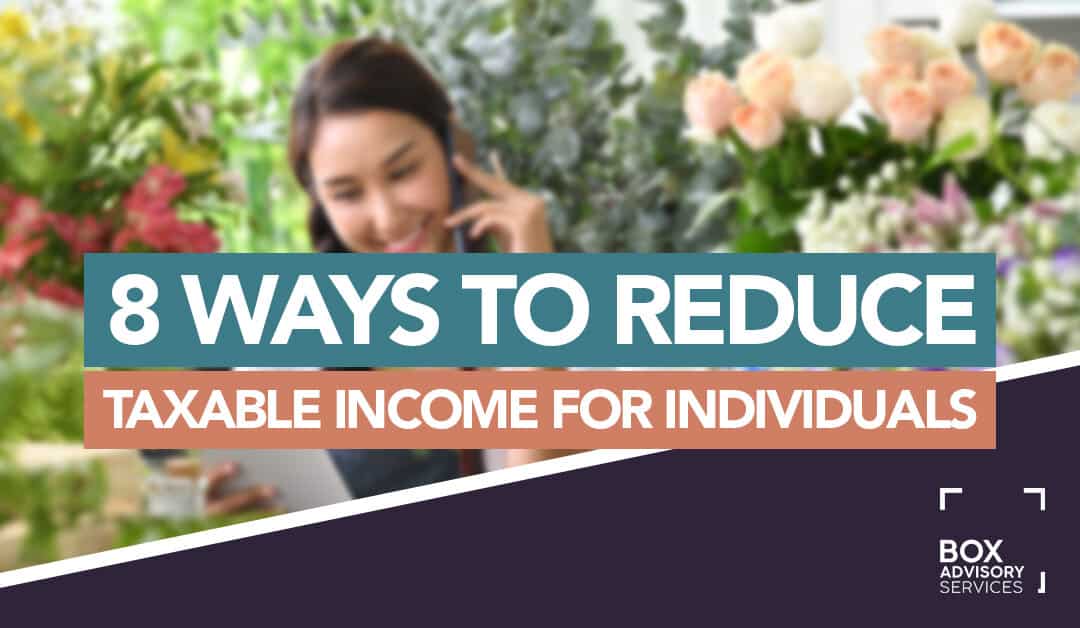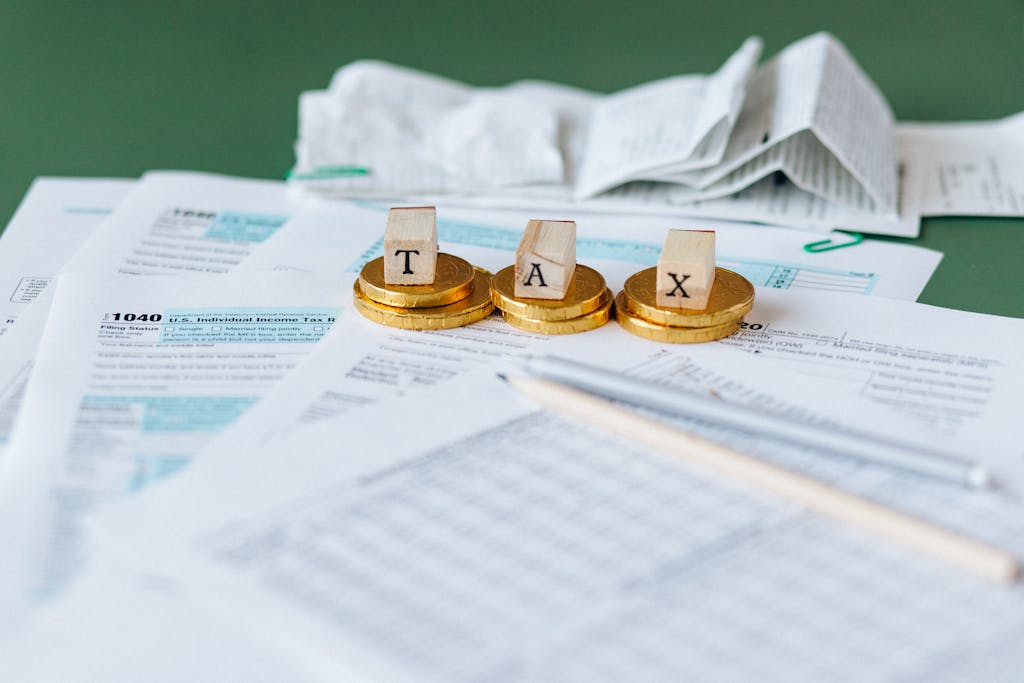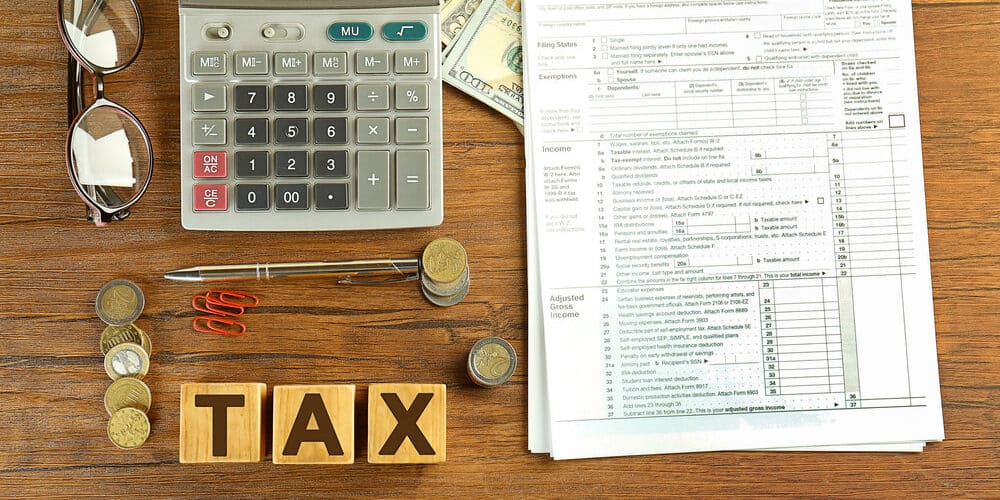
BY
|
8 Ways on How to Reduce Taxable Income for Individuals in Australia
Although paying tax is inevitable, most people want to determine how to reduce taxable income.
Did you know that through effective tax planning you could pay less tax and walk away with more money in your pocket each financial year?
But what does effective tax planning entail? What are the simplest ways to determine how to reduce taxable income? Are you entitled to tax deductions or offsets?
While there is no one-size-fits-all strategy when it comes to individual tax planning, we’ve put together this article to guide you on a few ways to reduce your income tax.
1. Tax Deductions for Work-Related Expenses
When investigating how to reduce taxable income, the first place to start looking is the tax deductions you qualify for.
According to the Australian Tax Office (ATO), individuals are allowed to claim deductions for some work-related expenses.
Employees are entitled to claim work-related expenses such as:
- home office expenses;
- self-education expenses;
- tools, equipment and other assets; as well as
- vehicle and travel expenses
2. How to Reduce Taxable Income Through Charitable Donations
One way to reduce your taxable income is to donate to a DRG organisation. A DRG (deductible gift recipient) is an ATO recognised organisation or fund that can receive tax-deductible gifts.
You are allowed to claim a tax deduction depending on the type of donation:
- money: the contribution or gift is more than $2, and you’ve kept a record of it;
- property or shares: see the ATO for the special rules relating to this type of donation; and
- gifts under the Heritage and Cultural programs: see the particular circumstances where donations can be deductible
3. Tax Deductions for The Cost of Managing Your Tax Affairs
Did you know that if you hire an accountant to help with tax advice as well as the preparation and lodging of your tax return, you are allowed to claim a tax deduction for those expenses?
You are also entitled to claim for the for tax-deductible expenses you incur in managing your tax affairs in general, such as for:
- travel costs associated with getting tax advice;
- litigation costs;
- obtaining a valuation for a deductible gift or donation of property; and
- any interest imposed by the ATO
4. How To Reduce Taxable Income Through Personal Super Contributions
If you are able to make a personal contribution to your superannuation fund each year, you could qualify to claim a deduction for the contribution.
Note: you can’t claim a deduction for super contributions paid by your employer directly to your super fund from your before-tax income
To claim a deduction for personal super contributions, your income must be generated from:
- salary and wages;
- a personal business;
- investments;
- government pensions or allowances;
- a foreign source;
- trust distributions; or a partnership
However, bear in mind that claiming this as a tax-deductible expense will mean that the superannuation fund will pay the tax at 15% instead.
5. Salary Packaging
Also commonly known as salary sacrificing, salary packaging involves arranging with your employer to package your salary into certain benefits.
So, essentially, you are agreeing to receive less income after tax in exchange for your employer paying for certain benefits from your salary before tax.
Examples of benefits can include:
- car payments;
- loan repayments;
- school fees for your children;
- and Home phone costs
Example:
Joan earns a salary amounting to $100,000.
She enters into an agreement with her employer to package her salary so that she receives $84,000 as income while $15,000 is paid towards her car and $1,000 is paid towards other expenses.
So, Joan’s taxable income is reduced to $85,000, resulting in her having to pay less income tax.
6. Pre-Paid Expenses
Your annual tax payable can be reduced by pre-paying some of your tax-deductible expenses such as prepaying the interest on an investment loan.
If you can pay some of your expenses in advance, you won’t have to worry about paying them the next year, and you can claim them as a tax deduction in the current year.
Note, however, if you do opt to prepay some of your tax-deductible expenses, the prepaid amount should not exceed twelve months.
7. Private Health Insurance Tax Offset
To encourage middle to high-income earners to reduce their dependability on the public health system and make the private healthcare industry more sustainable, the ATO introduced a private health insurance rebate.
The eligibility criteria to receive the tax offset includes:
- being an Australian citizen;
- having a taxable income of less than $140,000 as a single, or $280,000 as a family;
- holding a complying health insurance policy; and
- having a Medicare card
What’s more, is if you don’t have private healthcare insurance and you earn more than $90,000 (singles) $180,000 (families), you will pay a minimum of 1% Medicare Levy Surcharge. This is in addition to the compulsory 2.0% Medicare levy paid by most taxpayers.
So, you may want to look into considering private healthcare insurance to avoid the 1% surcharge and benefit from the tax refund.
There are two ways you can claim the health insurance rebate:
- a discount on your premium; or
- claim it through your tax return
If you’re looking for ways on how to reduce taxable income, we would suggest claiming it through your tax return.
8. Discretionary Trusts
Transferring assets into a discretionary family trust could lead to overall lower tax.
The trust is discretionary in nature because the trustee can independently exercise their decision making. In other words, the trustee can exercise his/her discretion when it comes to the distribution of income and capital among the beneficiaries.
For example, a trustee is able to make distributions to beneficiaries of the trust who fall within lower tax brackets. Or, if the trust makes any capital gains, it can be distributed to the beneficiaries with capital losses or those who qualify for the capital gains tax 50% discount. In each instance, the results could be lower tax.
For information on discretionary trusts and their advantages, you can access our essential family trust guide.
Key Takeaways
By arming yourself with knowledge on how to reduce taxable income and through effective tax planning, you could be in the best position to save money each year.
However, there’s no one-size-fits-all strategy when it comes to planning your individual tax return.
According to the ATO, 74% of Australian tax returns are lodged with a tax agent. In most cases, getting provisional advice will not only save you time, but they will also be able to guide you on how to reduce taxable income.
At Box Advisory Services, our small team of experienced accountants can help you navigate through putting together your tax reduction plan as well as preparing your tax return.
To find out how we can help you, book in a free consultation with us to assess your situation.
Sign up to our monthly newsletter where we share exclusive small business and contractor advice!
Disclaimer:
Please note that every effort has been made to ensure that the information provided in this guide is accurate. You should note, however, that the information is intended as a guide only, providing an overview of general information available to contractors and small businesses. This guide is not intended to be an exhaustive source of information and should not be seen to constitute legal or tax advice. You should, where necessary, seek a second professional opinion for any legal or tax issues raised in your business affairs.



